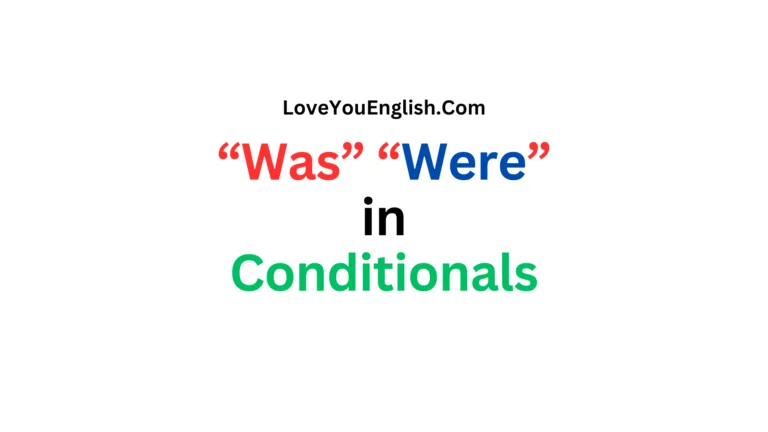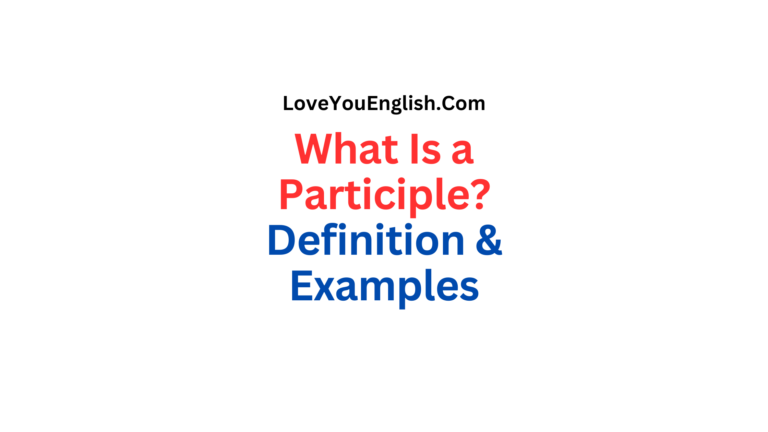Who vs. Whom: A Simple Guide
Are you often puzzled when deciding whether to use “who” or “whom” in a sentence?
You’re not alone! Many English speakers, even native ones, find this distinction tricky.
But don’t worry—this guide will make it crystal clear, using simple language and plenty of examples.
By the end, you’ll be using “who” and “whom” correctly without breaking a sweat!
The Basics: What Are “Who” and “Whom”?
Before diving into when to use each word, let’s understand what they are.
Who: This is a pronoun we use to refer to people (and sometimes animals) when we’re asking questions or talking about them.
For example:
-
- Who is your best friend?
- She’s the woman who lives next door.
Whom: This is also a pronoun that refers to people, but it’s used in a slightly different way.
We use “whom” when the person is receiving an action or is the object of a preposition.
Don’t worry if that sounds confusing—we’ll break it down soon!
Example:
-
- To whom should I give this package?
Both “who” and “whom” are used to talk about people (or sometimes animals), but they play different roles in a sentence.
The Role of “Who” in a Sentence
“Who” is what we call a subject pronoun.
That might sound fancy, but it’s pretty simple: “who” is used when someone is doing something in the sentence.
They’re the doer, the actor, the star of the sentence!
Let’s look at some examples:
- Who ate all the cookies? (The person who ate the cookies is the doer.)
- I don’t know who broke the vase. (We’re asking about the person who did the breaking.)
- The girl who won the race is my sister. (My sister is the one who did the winning.)
In each of these sentences, “who” refers to the person doing the action:
- Eating cookies
- Breaking a vase
- Winning a race
So, when you want to talk about the person doing something, use “who.”
The Role of “Whom” in a Sentence
Now let’s tackle “whom.” It might seem old-fashioned or formal, but it’s still correct English.
“Whom” is what we call an object pronoun.
That means it’s used when someone is receiving an action or is the object of a preposition.
Receiving an Action When someone is on the receiving end of an action, we use “whom.”
For example:
-
- Whom did you invite to the party? (The person was invited—they received the invitation.)
- The teacher whom I admire most is retiring. (The teacher receives my admiration.)
Object of a Preposition This part sounds complicated, but it’s not! Prepositions are words like “to,” “for,” “with,” “by,” “from,” and many more.
When “who/whom” follows one of these words, we use “whom.”
For example:
Remember: After words like “to,” “for,” “with,” “by,” and “from,” use “whom.”
The “He/Him” Trick
Still feeling unsure?
Here’s a super easy trick that works every time.
Replace the “who/whom” in your sentence with “he” or “him.” If “he” fits, use “who.” If “him” fits, use “whom.”
Let’s try it:
Who/Whom wrote this book?
-
- Try: He wrote this book. ✅
- Try: Him wrote this book. ❌
- So, the correct choice is: Who wrote this book?
The person to who/whom I spoke was helpful.
This trick works because “who” and “he” are both subject pronouns, while “whom” and “him” are both object pronouns.
It’s a foolproof way to choose between “who” and “whom”!
Common Phrases with “Whom”
Some phrases almost always use “whom.” Once you learn these, you’ll never get them wrong:
- To whom it may concern – Used at the start of formal letters when you don’t know who will read it.
- For whom the bell tolls – A famous phrase from a John Donne poem and Ernest Hemingway novel.
- With whom do you live? – Asking about the people someone lives with.
- From whom did you learn that? – Asking about the source of information.
These phrases are so common that you can just memorize them.
When you hear them with “who” instead of “whom,” it’ll sound off!
When You Can Break the Rules
Language is always changing, and in casual speech or writing, many people use “who” even when the strict rules say it should be “whom.”
For example:
- Who did you give the book to? (Technically: To whom did you give the book?)
- Who are you going with? (Technically: With whom are you going?)
In informal situations, especially in spoken English, using “who” in these cases is widely accepted.
Many people think “whom” sounds too formal or stuffy in everyday talk.
So while it’s good to know the rules, don’t worry if you hear “who” used in places where this guide says to use “whom”—it’s becoming more common.
Questions with “Who” and “Whom”
Questions are where people often trip up with “who” and “whom.”
But with our tricks, you’ll get it right every time.
Who/Whom Is It?
-
- Answer: It is he/him.
- So, we ask: Who is it? (Because we’d answer, “It is he.”)
Who/Whom Won the Game?
-
- Answer: He/Him won the game.
- So, we ask: Who won the game? (Because we’d answer, “He won the game.”)
For Who/Whom Are These Flowers?
See how the “he/him” trick makes it easy to choose between “who” and “whom” in questions?
“Who” and “Whom” in Relative Clauses
Don’t let the term “relative clause” scare you—it’s just a part of a sentence that gives us more information about a person or thing. Both “who” and “whom” are often used in these parts of sentences.
Using “Who” in Relative Clauses
- The woman who lives upstairs is a doctor. (She lives upstairs.)
- I know someone who speaks five languages. (That person speaks five languages.)
- Anyone who tries can succeed. (The person tries.)
In each case, “who” is doing something: living, speaking, trying.
Using “Whom” in Relative Clauses
- The candidate whom we interviewed was impressive. (We interviewed the candidate.)
- The author whom I admire most is Jane Austen. (I admire the author.)
- The colleague with whom I share an office is retiring. (I share an office with the colleague.)
Here, each person is receiving an action (being interviewed, being admired) or is the object of a preposition (with).
Even in these more complex sentences, the rules stay the same: “who” for the doer, “whom” for the receiver.
Historical Side Note: Why Do We Have Both Words?
You might wonder, “Why do we need both ‘who’ and ‘whom’?
Can’t we just use ‘who’ for everything?”
That’s a great question!
The distinction comes from Old English, which had more word endings to show a word’s role in a sentence.
Over centuries, English lost most of these endings, but “whom” stuck around as a remnant of that older system.
In many languages, like German or Russian, words change their ending to show if they’re the subject or object.
English used to be like that, but it simplified over time. “Whom” is one of the few survivors of this older, more complex system.
When to Use “Who” or “Whom” in Writing
The context of your writing affects whether you should strictly follow the “who/whom” rule:
Formal Writing
- Academic papers
- Business reports
- Legal documents
- Formal emails
In these settings, always use “who” and “whom” correctly. It shows attention to detail and professionalism.
Creative Writing
- Novels
- Short stories
- Scripts
Here, it depends on your characters.
A professor might say, “To whom are you referring?”
But a teenager would probably say, “Who are you talking about?”
Use the right choice for each character’s style.
Casual Writing
- Text messages
- Social media posts
- Personal emails
In these informal contexts, most people use “who” for everything. Writing “Whom should I invite?” in a text might seem overly formal or even snobbish.
Journalism and Blogging
- News articles
- Blog posts
- Magazine features
For a broad audience, many writers choose a middle ground.
They use “whom” when it follows a preposition (To whom did he sell the car?) but might use “who” in other object situations (Who did he sell the car to?) to avoid sounding too stiff.
Practice Makes Perfect
Let’s try some exercises to cement your understanding:
_____ is the best candidate for the job?
Answer: Who (The candidate does the job.)
_____ did you lend your car to?
Answer: Whom (You lent the car to someone.)
The neighbor _____ dog barks all night is moving.
Answer: whose (This is a curveball—”whose” is the possessive form!)
To _____ do I owe this pleasure?
Answer: whom (You owe something to someone.)
_____ painted this beautiful artwork?
Answer: Who (The artist did the painting.)
With _____ did Sherlock Holmes often consult?
Answer: whom (Holmes consulted with someone.)
_____ wants ice cream?
Answer: Who (The person desiring ice cream is the subject.)
The team _____ we beat last week wants a rematch.
Answer: whom (We beat the team—they received the action.)
How did you do?
If you got most right, great job!
If some were tricky, don’t worry.
Read through the guide again, and soon you’ll be a “who/whom” pro.
When Native Speakers Get It Wrong
Here’s a comforting thought: Even native English speakers often use “who” and “whom” incorrectly.
You might hear a native speaker say:
- Who should I give this to? (Technically: To whom should I give this?)
- I don’t know who to believe. (Technically: I don’t know whom to believe.)
So if you’re still mastering this, you’re in good company!
Many native speakers stick to “who” in casual speech, regardless of the rules.
Key Takeaways
- Use “who” when someone is doing an action (subject).
- Use “whom” when someone receives an action or follows a preposition (object).
- Try the “he/him” trick: If “he” fits, use “who”; if “him” fits, use “whom.”
- In casual speech, many people use “who” for everything.
- In formal writing, always distinguish between “who” and “whom.”
- Practice and read widely to internalize the usage.
Final Thoughts
The “who/whom” distinction might seem like a small detail, but it matters in certain contexts.
In formal writing or high-stakes communication, using them correctly shows precision and professionalism.
It’s a mark of someone who really knows the language well.
That said, language evolves. In everyday conversation, most English speakers use “who” across the board.
Some linguists even think “whom” might slowly disappear from the language, as has happened with other old forms.
But for now, “whom” is still standard in formal English.
By understanding when to use each word, you’ve added a powerful tool to your language kit.
You can now switch between casual style and formal precision as needed.
Whether you’re writing a business proposal, crafting a novel, or just chatting with friends, you’ll know exactly when to use “who” or “whom.”
It’s a small difference, but it can make a big impression.







